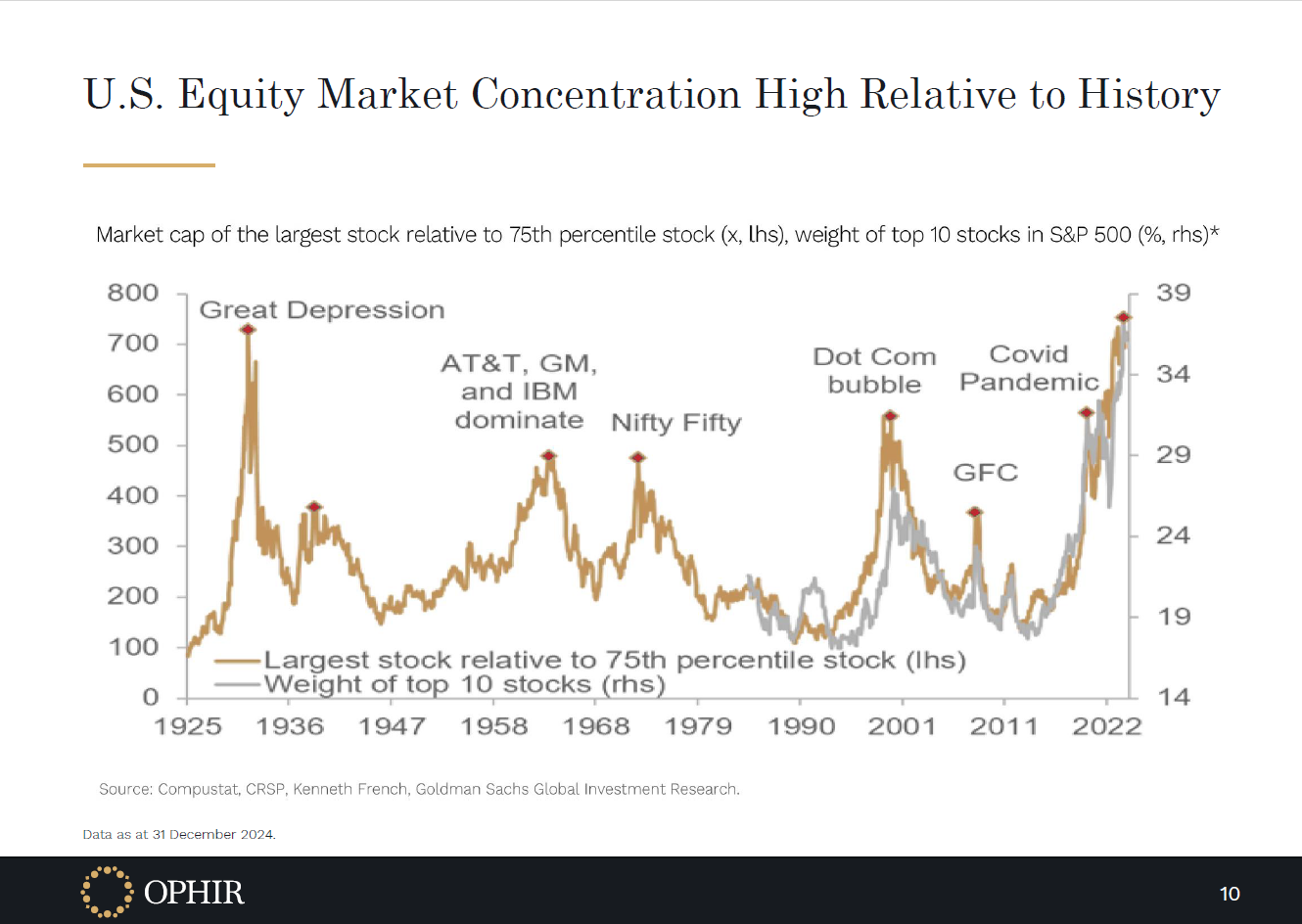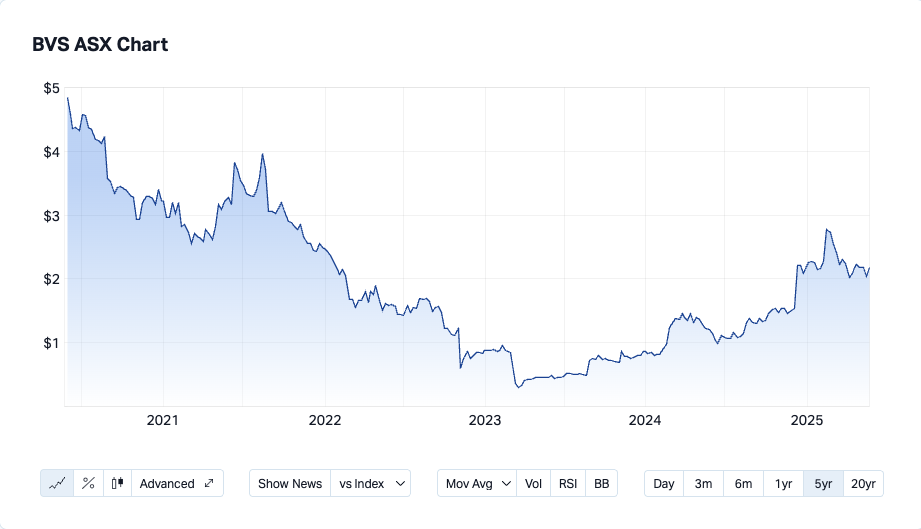Andrew Mitchell: The market always wins
Investors should temper expectations on economic growth as US policy uncertainty and higher bond yields create a tougher operating environment. That’s the view of Ophir Asset Management’s Andrew Mitchell, who says that in this scenario, companies able to grow regardless of the broader economic backdrop will become even more prized by investors.
“A lot of those companies are the ones that are going to become more scarce - and they become the real diamonds that people are looking for.”
We’ve already seen this play out in the recent equity market rebound, where technology companies have again been rewarded, despite ritzy valuations. The flipside? Companies more heavily tied to the economic cycle continue to lag.
Founded in 2012 by Mitchell and Stephen Ng, Ophir has established a strong track record of outperforming the market across various timeframes and investment cycles. The firm focuses on small and mid-cap companies, and its Ophir Opportunities Fund has been Mercer’s top-ranked Australian small cap fund, delivering 22.4% p.a. since inception.
In 2018, Ophir expanded its strategy offshore with the launch of the Ophir Global Opportunities Fund, which has generated an annualised return of 16% since inception.
In this episode of The Rules of Investing, Andrew Mitchell explains how Ophir has navigated recent market gyrations, the sustainability of US exceptionalism, and why there are good reasons to be optimistic about the outlook for equities.
He also shares the thesis behind Ophir’s investment in a mission-critical technology company flying completely under the radar.

Where to from here for equities?
Equity markets have clawed back most of the losses sparked by the Liberation Day tariff sell-off, and are now ahead of where we started the year. The sharp falls offered a brief window for investors with steel in their stomachs to buy quality businesses at more attractive valuations.
Mitchell is cautious about making market calls but says the path forward has a few bumps. Share prices have rallied thanks to multiple expansion, not earnings growth - and that’s despite rising bond yields. Two ingredients that would usually hold equities back.
“If you take a step back, the 10-year in the US is at 4.5%. You’ve got tariffs and uncertainty. I think we’re preparing ourselves for a lower-growth environment, and leading indicators are saying that growth will slow.”
In this kind of backdrop, Mitchell expects capital to keep flowing to companies able to keep growing earnings despite tougher conditions.
History doesn’t repeat, but it does rhyme
The “end of US exceptionalism” has become one of 2025’s dominant narratives. Big investors like Australia’s Future Fund have started redirecting capital away from the US.
Yes, the Magnificent 7 and strong productivity growth have powered Wall Street’s recent run, but how much of that productivity has come from government spending? And if the US needs austerity to manage its bulging deficit, is that sustainable?
Mitchell points out that while the US tech giants are still powerful, dominance doesn’t last forever.

Drawing on Goldman Sachs research, he highlights the historic valuation gap between US megacaps and the smaller companies Ophir focuses on in its global strategy. That gap is now at levels not seen since before the Great Depression.
“What history will show is that this concentration in big winning stocks doesn't last. Maybe with Trump’s agenda, and the whole ‘your margin is my opportunity’ Bezos idea, these giants will falter. It might be time for other countries and other companies to shine.”
Reasons for optimism
Markets always balance a tug-of-war between bulls and bears, but over time, the optimists have won out. Even in uncertain times, it pays to find the silver linings.
One bright spot, says Mitchell, is the depth of talent now leading ASX-listed companies.
“There’s some really exceptional management talent around now. We’re getting better at running businesses, and when those businesses succeed, you often see that talent go on to lead or start other companies.”
One area where this has played out is the gold sector. Ophir has followed and backed individuals rather than betting on the commodity itself, a strategy that’s worked well.
They’ve supported Bill Beament, moving from Northern Star (ASX:NST) to his new venture Develop (ASX:DVP), as well as Raleigh Finlayson at Genesis Minerals (ASX:GMD) and Luke Creight at Ora Banda (ASX:OBM).
Another standout example is Generation Development Group (ASX:GDG), led by Olympic gold medallist Grant Hackett.
“He’s just so driven. It’s in his DNA to not stop. Maybe the company has some short-term wobbles… but long-term you've got a great CEO at the helm who's a very good salesman. I think he'll make some smart acquisitions and really harness the growth that's coming from that sector of the asset consultants and the SMAs.”
Mission critical: A technology stock flying under the radar
Bravura (ASX:BVS) might not be a household name, and that’s exactly why Ophir finds it interesting. After a near-death experience, it’s now being reshaped by some of the most respected operators in global software.
Despite the recent CEO departure, Mitchell believes there’s a compelling thesis playing out. If it works, Bravura could soon be a rare “Rule of 40” stock, the kind investors are willing to pay up for.

So what’s the thesis?
- Mission-critical software: Trusted by Australia’s biggest super funds and the UK’s largest wealth managers.
- Elite new backers: The family office of Constellation Software (Canada’s $100bn software giant) is a major shareholder with board influence.
- Margins expanding: Cost-out program continuing to progress, with operations now shifted to India and Poland.
- Customers re-engaged: UK clients are spending again after years of hesitation.
- Room to grow: Existing customers buying more; new business pipeline building.
- Strong balance sheet: $50 million in cash, with special dividends now flowing.
“If they can hit double-digit revenue growth and 25% margins… we’re on the cusp of a Rule of 40 stock. And Rule of 40 software stocks don’t trade on 3x sales - they trade on 6 to 7x.”
Mitchell says it’s still under the radar, but if the thesis plays out, Bravura has all the right ingredients for a significant re-rating.
----
If you would like to sign up to the monthly Ophir newsletter and see what stocks we are buying and selling and our views on these turbulent markets, sign up here.
5 stocks mentioned
1 contributor mentioned


